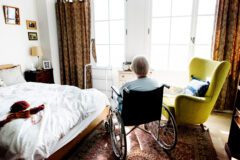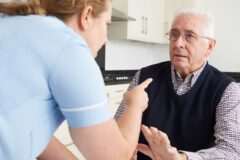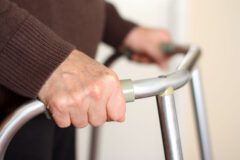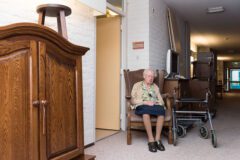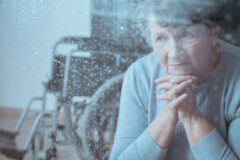Typical Signs & Symptoms of Dehydration in Nursing Home Residents
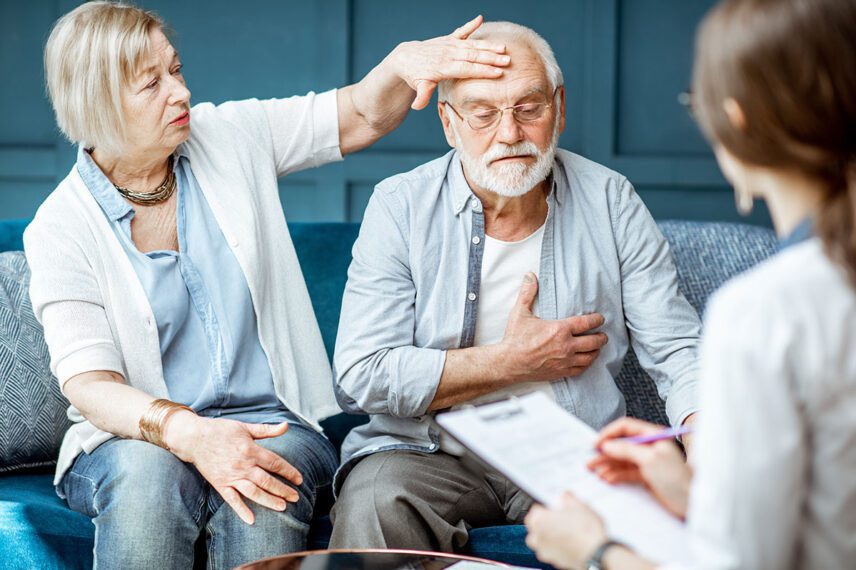
Dehydration is considered one of the most common forms of nursing home abuse. One study found that 39 out of 40 nursing home patients received inadequate fluid intake, with 25 out of 40 of those same patients suffering from another illness due to dehydration.
Dehydration happens when a person doesn’t drink enough fluid to compensate for the fluids their body passes through sweat, urination, or stool. When a person doesn’t get enough fluids, their body has a harder time performing vital activities, and illness can occur. Because some elderly people do not have a strong thirst drive, careful monitoring of their fluid intake is necessary to prevent dehydration, especially since it can lead to medical complications.
Causes of Dehydration in the Elderly
Elderly patients can experience dehydration for several reasons. One of the most common reasons is that elderly patients often have a lower thirst drive and may not physically feel the need to drink water, even if their body needs it. Other times, residents may not be able to verbalize the fact that they’re thirsty, or there may not be enough staff members to hear them when they do verbalize their thirst. Additionally, poor employees may not monitor their residents frequently enough to ensure they receive proper fluid intake.
Symptoms of Dehydration in Nursing Home Patients
If left untreated, symptoms of dehydration can worsen over time. While individual symptoms may vary in severity depending on the person’s health, age, and weight, the typical early warning signs of dehydration in the elderly include:
- Having drier average skin
- Increased thirst
- Having little to no urine output
- Going to the bathroom less frequently
- Experiencing dry mouth
Later-stage warning signs of dehydration include:
- Low blood pressure
- Confusion and irritability
- Rapid breathing
- Inability to sweat
- Sunken eyes and cheeks
- Delirium
- Unconsciousness
Other Warning Signs of Dehydration
While the above symptoms are universal symptoms of dehydration, additional warning signs may depend on the individual. These warning signs may or may not include:
Recent weight loss
Unexpected or extreme weight loss is a common indicator of a serious medical condition, be it dehydration or otherwise, and should always be investigated by a doctor.
Vomiting/Diarrhea
Both vomiting and diarrhea can disrupt a person’s electrolyte balance and deplete fluid levels, causing dehydration. Proper fluid and electrolyte replacement should always be appropriately monitored if either condition occurs in the elderly.
Dizziness
Both vertigo and dizziness are warning signs of dehydration.
Feeding/IV Tubes
Water retention is often affected by the presence of feeding and/or IV tubes, so it’s important to ask your doctor questions about fluid administration.
Fever
Fever and high body temperature make the body deplete its fluid levels at a faster-than-average rate. Ensure your loved one receives constant fluid replenishment during an illness.
Diuretics
Diuretics decrease body fluids to control high blood pressure or other issues. These work by causing the body to release fluid (through urination or otherwise) and may lead to dehydration issues. Ask your doctor about proper ways to prevent dehydration while taking a diuretic.
Confusion/Disorientation
Any changes in the mental state of elderly residents should be paid close attention to. Dehydration and improper nutrition can often cause rapid changes in mental status, so speak to the staff immediately if you notice a change in your loved one’s behavior.
Has Your Loved One Suffered from Dehydration?
If your loved one is showing symptoms or early warning signs of dehydration, it’s essential to ensure they receive the proper care. Speak to the staff and medical professional immediately. Dehydration can be a form of nursing home abuse, especially if there has been a pattern of negligent care at your nursing home facility.
If you suspect your care providers are to blame for your loved one’s dehydration, contact a personal injury attorney to hold them accountable for their negligence.

